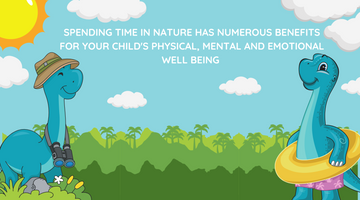New parents often feel overwhelmed and stressed when their newborn baby starts to act fussy. It's hard to know the exact cause of their fussiness, but it could be due to hunger, a diaper change, or even feeling uncomfortable. In some cases, it might be due to colic. Whatever the cause, it's important to know how to calm your fussy baby and prevent them from crying. One way to do this is by swaddling your baby in an organic swaddle. This helps to provide a safe and secure feeling for your infant, which can help to reduce their crying and fussiness. With the right strategies, you can learn how to calm your fussy baby and help them feel safe and secure.
Causes for Your Baby Acting Fussy
There are many potential causes for a baby to act fussy, which can include physical, emotional, and environmental factors.
Some of the main reasons include:
- Hunger: New born Babies have a tiny stomach and need to be fed frequently. They may become fussy if they are not fed regularly or if they are not getting enough milk or formula.
- Tiredness: Lack of sleep can cause a baby to be fussy and irritable. A baby's sleep schedule can be disrupted by various factors such as teething, growth spurts, illness, or changes in routine.
- Cholic: this condition that causes infants to cry excessively and inconsolably for extended periods of time, usually in the evening. The crying is usually accompanied by other symptoms such as drawing up of legs, passing gas, and a distended abdomen.
- Discomfort: A dirty diaper, tight clothing, or a wet or soiled clothing can cause discomfort and lead to fussiness. Other causes of discomfort include gas, colic, reflux, or ear infections.
- Sensory overload: Babies can be easily overwhelmed by too much noise, light, or activity around them. They may become fussy if they are overstimulated by their environment.
- Teething: Teething can be a painful and uncomfortable process for babies and may cause them to be fussy.
- Illness: A baby may become fussy if they are feeling unwell due to weather changes or change in their diet.
- Development: As babies tend to develop and grow, there are chances where they might experience changes in their mood and behavior. These changes can cause them to be fussy at times.
- Emotional needs: Babies are still learning how to express their emotions and may become fussy if they are feeling upset, frustrated, or overwhelmed. They may also become fussy if they are experiencing separation anxiety or if they are not getting enough emotional support and attention.
The cause of fussiness can vary depending on the child's individual needs and development. If you are concerned about your baby's fussiness, it's always best to consult your pediatrician.
How to Calm Your Fussy Baby
Calming a fussy baby can be challenging, but there are several strategies you can try to soothe and comfort your baby.
You can calm your fussy baby by following these tips:
- Check for physical needs: Make sure your baby is fed, burped, and has a clean diaper. Discomfort from a dirty diaper, gas, or an upset stomach can cause fussiness.
- Create a calm environment: Reduce noise and light, and try to keep your baby's surroundings as quiet and peaceful as possible.
- Hold and cuddle your baby: Physical touch can be very soothing for babies. Holding your baby close and providing skin-to-skin contact can help calm them down.
- Rock or sway your baby: The motion of rocking or swaying can be calming to babies, especially if they are used to the sensation of being in the womb.
- Try a baby carrier: Carrying your baby in a baby carrier or sling can be calming and soothing for them.
- Give your baby a warm bath: A warm bath can help relax your baby and make them feel more comfortable.
- Use a pacifier: If your baby is accustomed to using a pacifier, offering it to them during periods of fussiness can help soothe them.
- Try to distract your baby: Engage your baby in play, or try to distract them with a toy or activity.
With the tips & strategies provided by Little by Navya, you can now have a better understanding of how to calm your fussy baby. Hopefully, you can find the best solution to soothe your little one.






